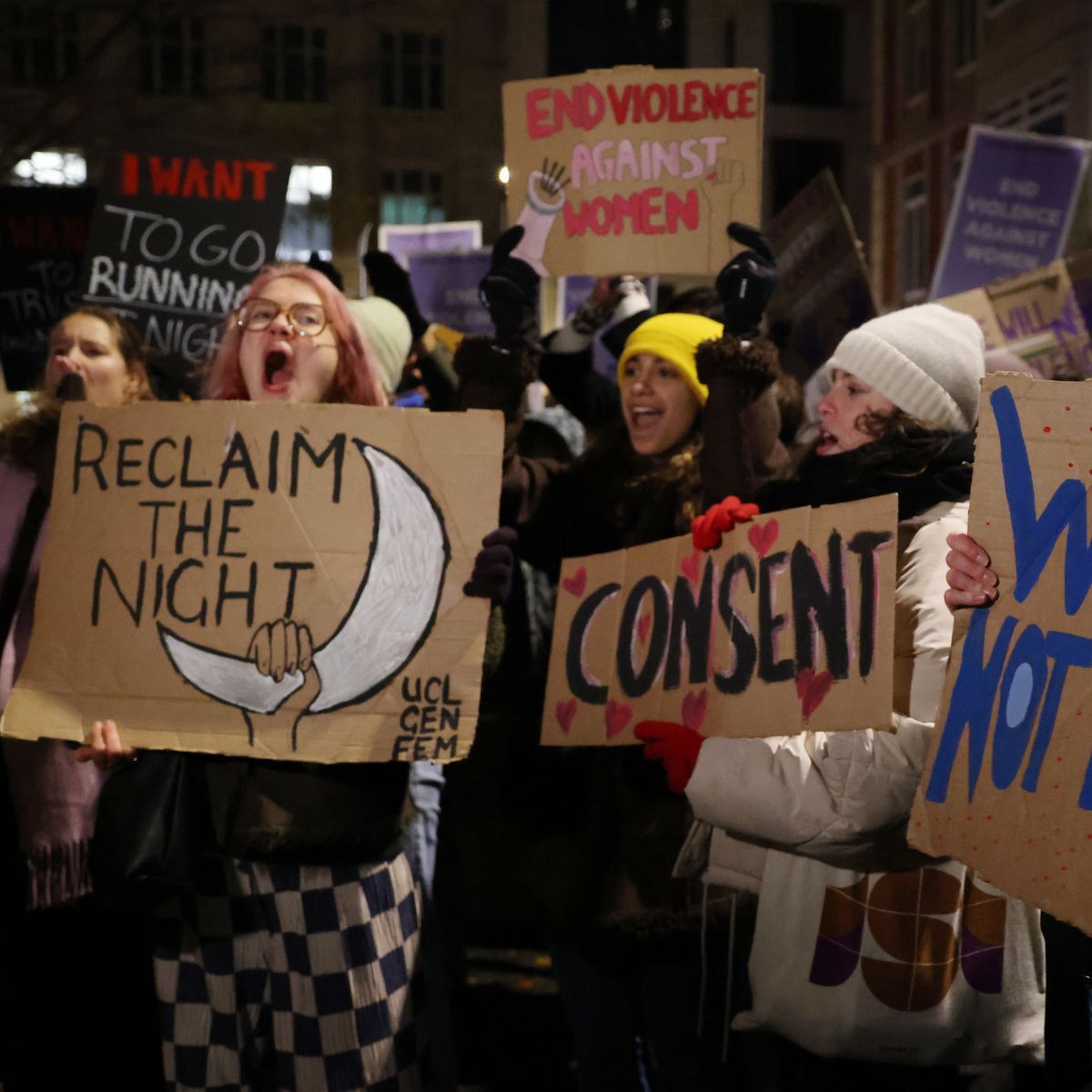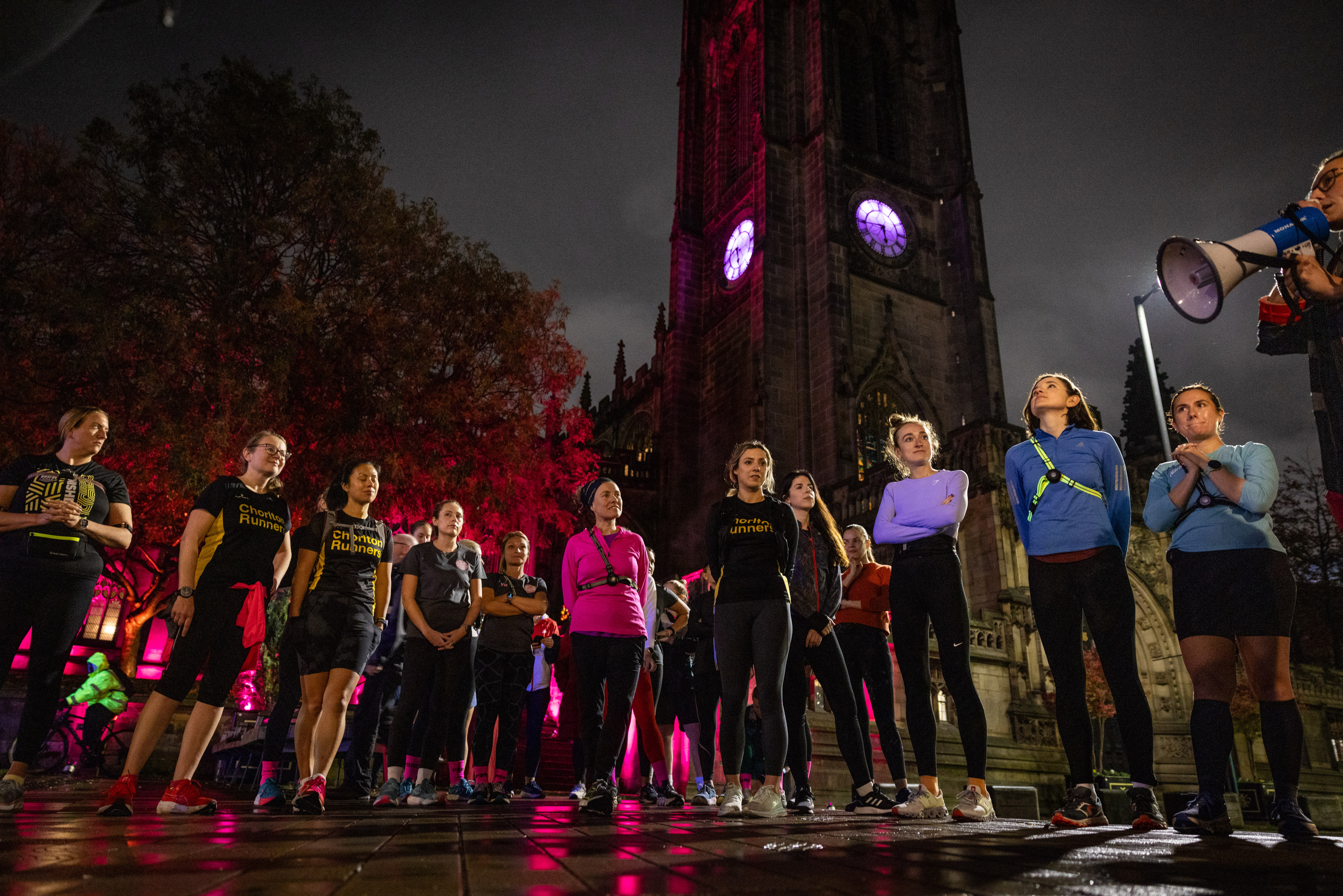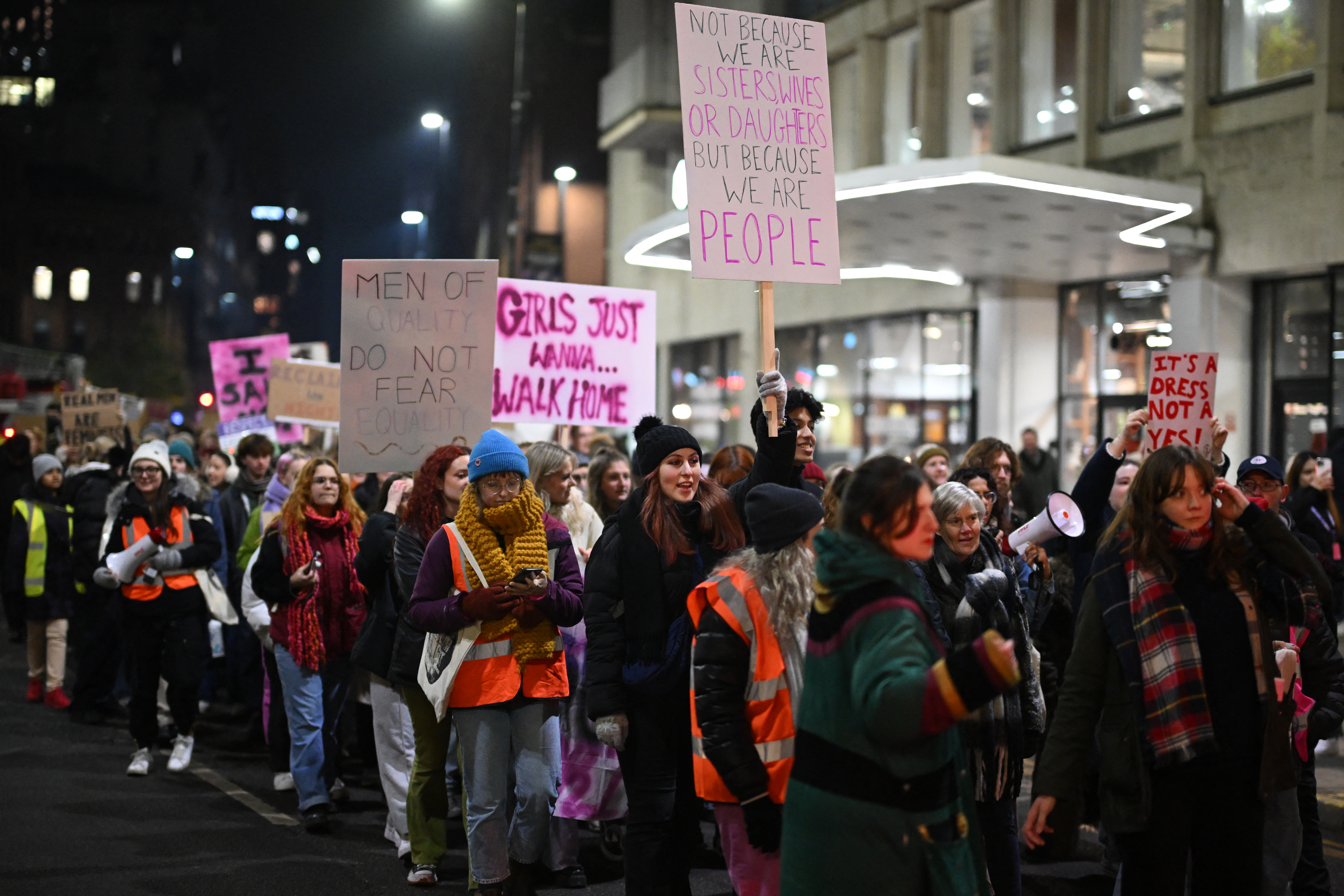
As a woman, I’ve lost count of how many times I’ve raced home with my keys pressed between my fingers, my other hand hovering over the call button — 999 or my boyfriend already pre-dialled. Every woman I know has a version of this story. We adapt our behaviour to feel safe: changing routes, sharing locations, staying on the phone, and, of course, sending or waiting for the obligatory “text me when you get home” message.
For me, the clocks going back means I start carrying a pair of flats in my bag to change into if I’ve worn heels to the office or an after-work event, so I can make a quick dash if I need to, but also so the sound of my heels doesn’t announce my presence to any would-be attacker.
These precautions have become second nature for many women. Yet despite all the planning and hyper-awareness, harassment still finds us. Last year, somewhat ironically, I was stopped on my way home from a UN Women event marking 16 Days of Activism. I’d shared a taxi with another attendee, but when the driver refused to make a second stop, I got out about five minutes from my home. It was still early enough that the high street was busy, but as I turned onto a quieter street, I noticed a man clock me, then cross the road to walk on my side. He came up close, told me I looked “sexy,” and then carried on.
I was shaken but counted myself lucky. Like so many women, I immediately ran through all the ways it could have been worse.
Every year when the clocks go back, women everywhere see their world get smaller — not because they want to, but because they don’t feel safe going out after dark.
Kate Dale, Director of Marketing at Sport England and This Girl Can
Experiences like this aren’t rare or extraordinary; they’re routine, and they shape how we move through the world. Data published by the National Police Chiefs’ Council found that over one million VAWG-related crimes were recorded by the police in 2022/23, which is about 3,000 offences each day.
Research by This Girl Can found that nearly three-quarters of women in the UK alter their outdoor exercise routines during the winter months. The findings also highlight the extra safety measures many women take once the clocks go back, with one in four choosing well-lit routes, almost a quarter avoiding certain areas entirely, and one in five regularly checking over their shoulder to make sure they’re not being followed. Can you blame them when approximately 800,000 women in England and Wales experienced sexual assault in 2022, according to the latest figures?

“Women’s safety continues to dominate headlines, an ever-present, stark reminder that this issue hasn’t gone away,” says Kate Dale, Director of Marketing at Sport England and This Girl Can. The organisation’s new campaign, Let’s Lift the Curfew, calls for women to reclaim outdoor activity after dark and demands systemic change so that safety fears no longer force so many of us off our routes.
Data from the Active Lives Adult Survey shows that women are consistently less likely than men to meet physical activity guidelines — and that safety concerns are a major barrier to being active after dark in winter, impacting both physical and mental health.
“Every year when the clocks go back, women everywhere see their world get smaller — not because they want to, but because they don’t feel safe going out after dark,” adds Dale.

With shorter days and longer nights, women are forced to take extra protection measures to stay safe when moving through public spaces. But it shouldn’t have to be that way.
Tabitha Morton, UN Women UK Executive Director
Most of us know the feeling of walking home with our keys clamped between our fingers, nervously glancing behind to see if anyone is following, while trying to look unbothered. “I feel like every time I walk home, I've got a man three steps behind me trying to get home in a rush, making me feel uncomfortable,” says investigative reporter Ellie Flynn, whose undercover work has exposed sexual harassment on party islands like Magaluf as well as at home.
Flynn was followed into her hotel room by an unknown man while filming Undercover: Sexual Harassment — The Truth, so she knows all too well the dangers of predatory behaviour and a culture that normalises sexism and misogyny.
“We know that when women don’t feel safe, their movements are restricted,” explains Tabitha Morton, Executive Director of UN Women UK. “With shorter days and longer nights, women are forced to take extra measures to stay safe in public spaces. But it shouldn’t have to be that way.”
Morton’s words recall the viral question: “What would you do if all men disappeared for 24 hours?” The answers weren’t grand or defiant — they were simple, and heartbreaking. “Go on a night out and not have to watch my drink every second,” read one TikTok comment. Another said, “Imagine being able to wear both AirPods.”
Everyone should be able to walk home safely without needing makeshift weapons or leaving one ear free to listen for danger. Yet, at a time when sexist crimes are on the rise — violence against women and girls makes up just under 20% per cent of all recorded crime in England and Wales — walking home without an escape plan doesn’t just feel naive, it feels reckless.
Of course, it shouldn’t feel that way. Even when we follow all the “guidance” and safety best practices, we can still end up in danger. Being a woman can sometimes feel like playing a rigged game of Russian roulette. Some nights, as I walk home, I catch myself wondering if tonight will be the night I draw the short straw — and what more I could possibly do to protect myself.
But we shouldn’t be telling women to take self-defence classes or carry pepper spray and rape alarms. We should be teaching men and boys not to harm women. And, as the Right to Move campaign urges, we should be looking out for one another and calling out harassment when we see it.
Divided into three action points — Stop, Support, Report — the campaign asks the public to share responsibility for protecting and looking out for each other. It’s something I’ve seen women do instinctively, but rarely men. Not, I think, because they don’t care — but because, as women, we are conditioned to anticipate danger. We have to be.
For too long, gender-based violence has been treated as a women’s issue rather than a human rights issue. But sexism and misogyny harm everyone. Freedom of movement is a human right, but it still falls disproportionately on women to protect themselves,” says a spokesperson for UN Women UK. It’s in all of our interests to stamp out sexual harassment and gender-based violence, and the only way to do that is together.
Stop. Support. Report. It’s a good place to start.
How to help keep public spaces safe
- Stop and offer your help (focus on the person, not the perpetrator)
- Support the person to safety (check what would make them feel safe, walk them to the bus/train, call a taxi, wait with them until a friend arrives)
- Report it only if they want to (this could be by calling 999, Text British Transport Police on 61016 or to the security or management team of the event or space)







